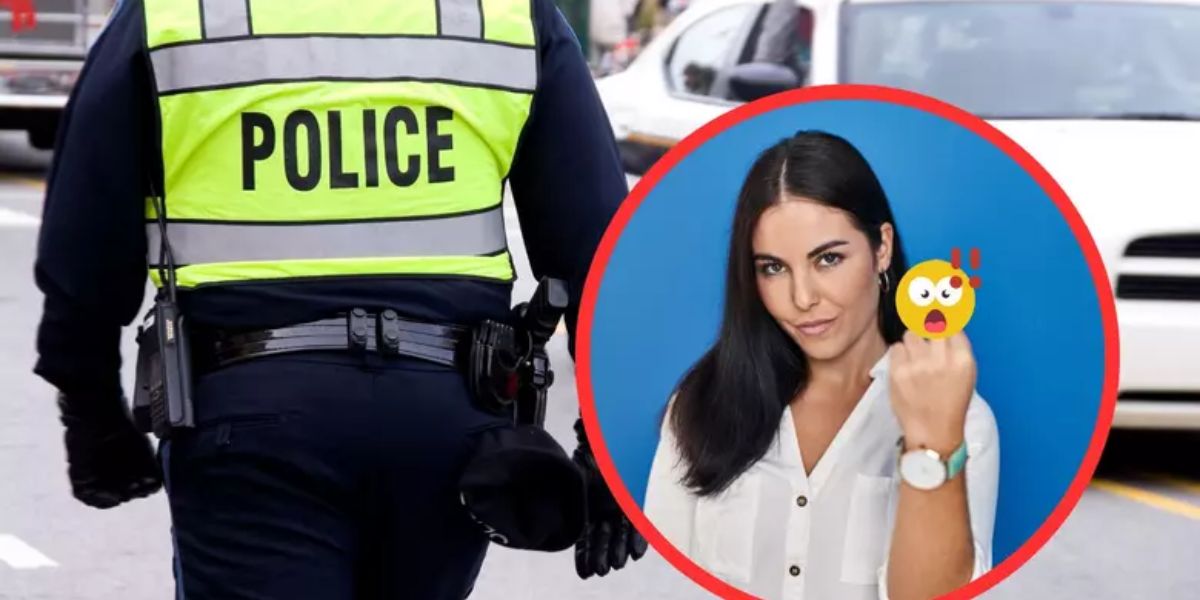Flipping someone off — using your middle finger in an obscene gesture — is often seen as rude, offensive, or provocative. But when the target is a police officer, the stakes can feel much higher. Many Hoosiers wonder: is it actually illegal to flip off a cop in Indiana? Could you be arrested, fined, or charged just for making this gesture?
Let’s break it down carefully by looking at free speech rights, local laws, and real-life examples.
The First Amendment and Free Speech
At the heart of this issue is the First Amendment to the U.S. Constitution, which protects freedom of speech. Courts have consistently ruled that the government, including police officers, cannot punish people simply for expressing offensive or unpopular opinions.
The U.S. Supreme Court has long recognized that speech does not lose its protection just because it’s crude or disrespectful. This includes gestures like giving the middle finger. So, under federal constitutional law, flipping off a cop is typically seen as a form of expression, not a crime.
A key case is Cohen v. California (1971), where the Supreme Court overturned the conviction of a man who wore a jacket that said “F*** the Draft” in a courthouse. The Court ruled that the government could not make it a crime to display offensive words or gestures simply because they are offensive.
Indiana Law on Disorderly Conduct and Obscenity
While federal law sets broad protections, states like Indiana have their own laws on disorderly conduct, public intoxication, resisting law enforcement, and obscene behavior.
In Indiana, the disorderly conduct statute (Indiana Code § 35-45-1-3) prohibits engaging in “fighting or in tumultuous conduct,” making “unreasonable noise,” or disrupting lawful assemblies. Importantly, just making a rude gesture — like flipping the bird — usually does not rise to the level of disorderly conduct, unless it is accompanied by other disruptive or violent behavior.
Indiana also has laws on public indecency and obscene material, but these are typically aimed at sexually explicit acts or materials, not gestures like the middle finger.
So, under Indiana law, flipping off a cop alone is unlikely to be illegal.
When Can You Get in Trouble?
Even though the gesture itself is protected, how and when you use it matters.
For example:
Protected Expression: If you quietly flip off a passing police car or officer, you are likely protected under the First Amendment.
Risky Behavior: If you flip off an officer while yelling threats, blocking traffic, or interfering with an investigation, you could be charged with disorderly conduct, obstruction, or resisting law enforcement — but not simply because of the gesture.
Traffic Stops: If you flip off a cop during a traffic stop, the officer might still pull you over or issue a ticket for something unrelated, even though the gesture alone isn’t grounds for arrest. While the ticket might not hold up in court, it could still create hassle and cost you time and money.
Real-Life Cases Across the U.S.
This issue has come up many times in courts around the country.
In Cruzan v. Special School District (1991), the Eighth Circuit ruled that a teacher had a constitutional right to make a “flipping the bird” gesture, as it was considered protected speech.
In Swartz v. Insogna (2013), the Second Circuit ruled that a New York driver’s middle-finger gesture to a police officer was protected speech. The officer had pulled the driver over after seeing the gesture, but the court found that this stop violated the driver’s Fourth Amendment rights because the officer lacked reasonable suspicion of a crime.
These cases show that courts consistently protect individuals’ rights to make offensive gestures, even toward law enforcement.
What Should You Do If It Happens?
While the law may be on your side, it’s still wise to think carefully before flipping off a cop. Here’s why:
- Practical Risk: Even if it’s legal, the officer might still find a reason to stop or question you.
- Escalation: Gestures can escalate situations unnecessarily, increasing tension during interactions.
- Legal Costs: Even if you win in court, fighting a wrongful arrest or citation can take time, money, and emotional energy.
If you believe your rights were violated after a police interaction, it’s better to stay calm and document the incident. You can later file a complaint or consult with an attorney.
Final Takeaway
In summary, flipping off a police officer in Indiana is not illegal in itself. It is protected under the First Amendment as a form of free expression. However, the context matters — if the gesture comes with threats, interference, or illegal behavior, you could still face charges unrelated to the gesture.
While you have the right to express yourself, it’s important to weigh the practical consequences. Exercising your rights wisely can help you avoid unnecessary trouble, even when the law is technically on your side.
In any encounter with law enforcement, staying calm, respectful, and informed is often the best approach — even when emotions run high.







Leave a Comment